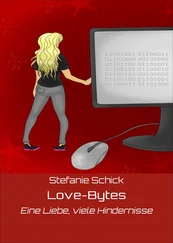1 ...7 8 9 11 12 13 ...69 Don't worry, I'll get better next year, and then we'll go to the desert like I promised, just you wait and see, bluffed his father. Their one comfort was Hideyuki's positive attitude.
Machiko believed her husband, but, at the same time, whenever she let herself imagine what might happen, she became despondent. She grew weaker emotionally, and physically.
And that was why it fell to Kaoru to take a central role in the family. It was Kaoru who stood in the kitchen and made sure his mother ate enough when she couldn't bring herself to think about food; it was Kaoru who swiftly absorbed enough medical knowledge to plant thoughts of an optimistic future in his mother's head.
There was an operation in which two thirds of Hideyuki's stomach was removed, and it went well; if the cancer hadn't metastasized, there was every chance he'd get well. By the beginning of autumn Hideyuki was able to return home, and to his laboratory.
It was around that time that a change began to appear in Hideyuki's attitude toward Kaoru. On the one hand, as a man he had a new respect for the dependability his son showed while he was in the hospital, but on the other hand he began to be stricter with his son out of a new determination to make him into a stronger man.
He stopped calling him "kiddo", and encouraged him to spend less time on his computer and more time exercising his body. Kaoru didn't resist, but went along with his father's new expectations: he could detect certain desperation in his father, as if he wanted to transfer something from his own body to his son's before it disappeared.
He knew his father loved him, and he felt special, as if he'd inherited his father's will; pride coursed through him.
Two years passed uneventfully, and Kaoru's fifteenth birthday came around. But changes had been taking place inside his father's body. Those changes were revealed by a bloody stool.
This was a red light signalling the spread of the cancer. With no hesitation this time, Hideyuki saw the doctor, who gave him a barium enema and x-rayed him. The x-ray showed a shadow on the sigmoid colon about half the size of a fist. The only conceivable course of action was surgery to cut it out.
There were, however, two possibilities for the surgery. One option would leave the anus; the other would remove more tissue and require the insertion of an artificial anus. With the former, there was the fear that they would miss some of the invading cancer cells, leaving the possibility of a recurrence, while the latter option of removing the entire sigmoid colon allowed for more surety. The doctor's opinion was that from a medical standpoint the artificial anus would be preferable, but because of the inconvenience and lifestyle changes that would bring, he had to leave the final decision up to the patient.
But Hideyuki didn't flinch as he coolly chose the artificial anus. If you open me up and can't say with certainty that the cancer hasn’t spread that far, then I want you to cut it all out without hesitation, he'd volunteered. He intended to bet on the option with the best odds of survival.
Once again the summer found him back in the hospital for surgery. When they cut him open, the doctors found that the cancer hadn't invaded as far as they had feared; normally, in this situation, leaving the anus in would give at least even odds of success. But the surgeon in charge decided, in view of the patient's expressed wishes, to remove the sigmoid colon entirely.
Once again autumn found Hideyuki checking out of the hospital. For the next two years he'd lived in fear of signs of a relapse, as he strove to get used to life with a colostomy.
Exactly two years later there was another sign, this one a yellow light, as it were. Hideyuki became feverish and his body took on a yellowish cast, symptoms that got worse day by day. One look at his jaundiced condition told the doctors that the cancer was attacking his liver.
The doctors hung their heads. They thought they'd made sure, over the course of two previous surgeries, that the cancer hadn't spread to the liver or lymph nodes.
It was at this time that Kaoru began to suspect that what they were seeing was the emergence of some unknown illness, something that was indeed a kind of cancer, but one different from those previously known. His interest in basic medicine intensified. In the summer of his seventeenth year, having graduated from high school a year early, he entered the pre-med program in the same university that his father had attended.
The third time he lay down on the operating table, Hideyuki lost half his liver. He subsequently checked out of the hospital, but neither Kaoru nor Machiko could make themselves believe now that the battle with cancer was over. The family watched for enemy movements with bated breath, wondering where the cancer would invade next; the return of a peaceful, happy home life was something hardly to be hoped for.
That cancer won't rest until every organ in his body has been plucked out, Machiko insisted, and she wouldn't listen to any of Kaoru's medical knowledge. If she heard about a new vaccine, she'd scramble to get her hands on it even before it was fully tested. Hearing vitamin therapy was effective she tried that; she pressured the doctors into trying lymphocyte treatment; she even sought salvation in charismatic religion. She was willing to try anything-she couldn't swear she wouldn't sell her soul to the devil if it would save her husband's life. It depressed Kaoru to see his mother running around like a woman possessed. It was beginning to look like his father's death would also mean the collapse of his mother's psyche.
After that, Hideyuki spent most of his time in his hospital bed. He was still only forty-nine, but he looked like an old man of seventy. His hair had fallen out as a side-effect of the anti-cancer drugs, he was emaciated, his skin had lost its luster, and he was constantly running his fingers over his whole body and complaining of itchiness. But even so, he never lost his attachment to life. As his wife and son sat by his bedside he'd hold their hands and say, ''You listen to me, next year we're going to that desert in North America." And he'd force a smile. It wasn't exactly false cheer-he obviously fully intended to fight this illness so he could keep his promise. The sight was both reassuring and painful.
As long as his father showed such a positive attitude toward life, Kaoru never entertained thoughts of giving up. No matter how bad the cancer got, Kaoru believed his father would conquer his illness in the end.
At around this time, a type of cancer with the same progression as Hideyuki's began to be identified, first in Japan, then worldwide. At first the true cause of this new strain could not be identified, as if it lay wrapped under a veil. A few medical professionals supported a theory that it was the work of a new virus that turned cells cancerous, but they couldn't explain how this cancer virus differed from others, and besides, there had been no reports of such a virus being successfully isolated. But the vague suspicion spread.
It can take several years after a new disease has been identified to pinpoint the virus that causes it. The lag was especially understandable in the case of the cancer that had afflicted Hideyuki and millions of others, because at first it looked just like any other cancer: nobody realized they were dealing with a new disease. But gradually the world came to be gripped by fear that a terrible new virus had been unleashed.
Finally, one year ago, the new cancer virus had been successfully isolated in a laboratory at the medical school of Fukuzawa University. With that they had proof: a virus was the cause of this metastatic cancer.
The new virus was named the Metastatic Human Cancer Virus, and it was thought to have the following characteristics.
Читать дальше
Конец ознакомительного отрывка
Купить книгу
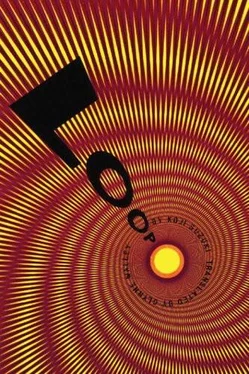
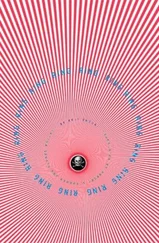

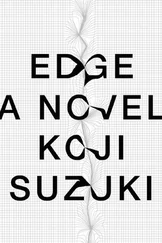

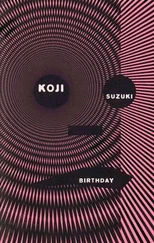
![Yuriy Ktitorov - Sasha [Love]. Part 1](/books/459553/yuriy-ktitorov-sasha-love-part-1-thumb.webp)
